
Flexibility in Power System Development Sulawesi Case Study
This publication, titled Flexibility in Electricity System Development: A Case Study of Sulawesi Island, examines in depth how Indonesia’s electricity

This publication, titled Flexibility in Electricity System Development: A Case Study of Sulawesi Island, examines in depth how Indonesia’s electricity
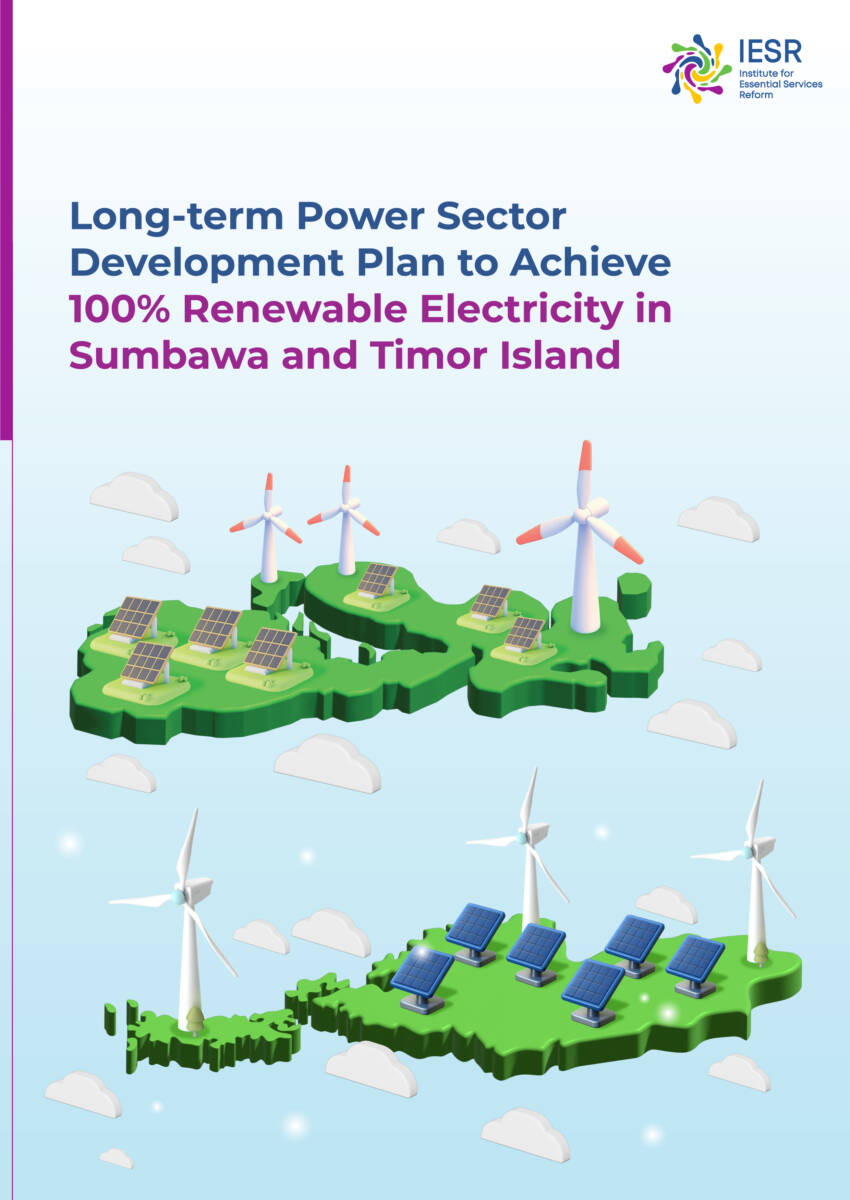
This publication outlines a comprehensive plan to achieve 100% renewable electrification in Sumbawa and Timor Islands, and serves as an
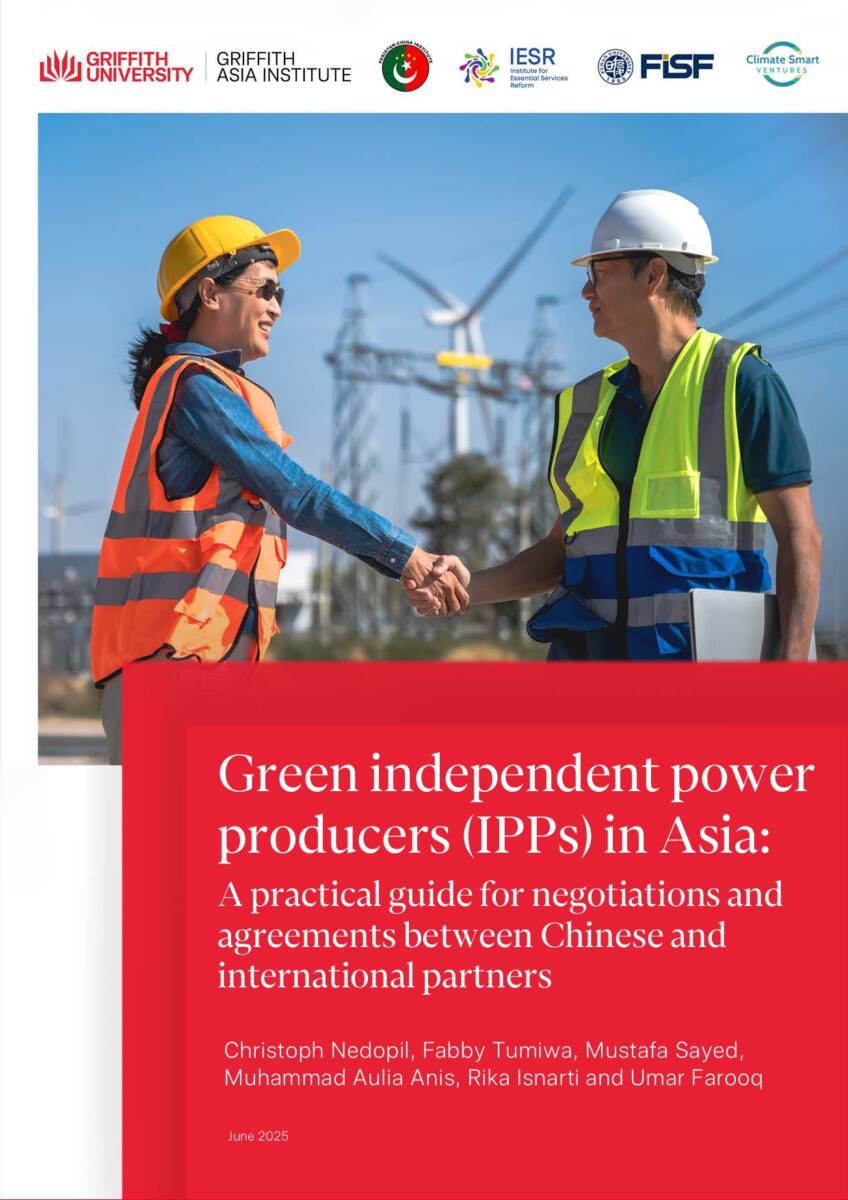
This publication provides practical guidance on how Asian off-takers (state-owned utilities) and Independent Power Producer (IPP) sponsors especially Chinese IPP

Prospects and Investment Opportunities for Renewable Energy in Central Java: A Guide to Green Economic Growth Indonesia is targeting an
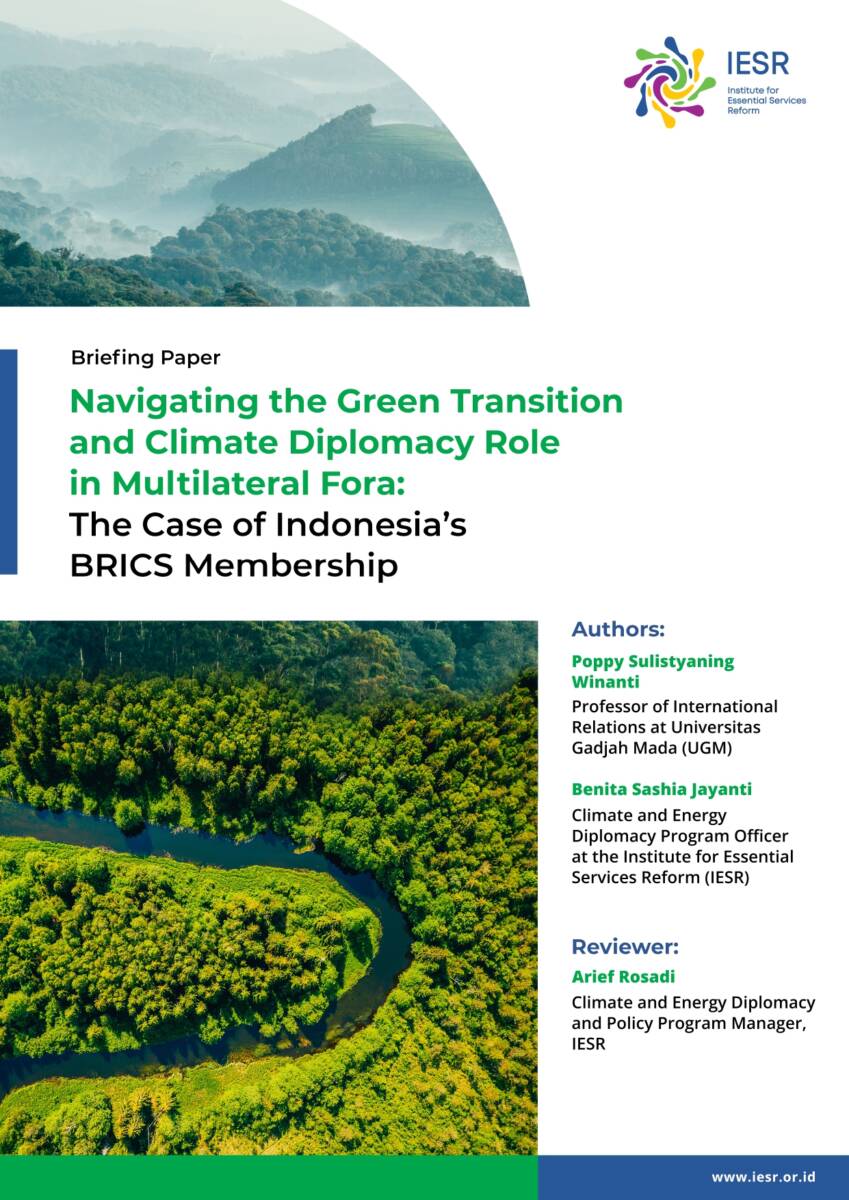
This briefing paper analyzes Indonesia’s green transition, a complex journey presenting both significant opportunities and challenges. Indonesia strives to balance
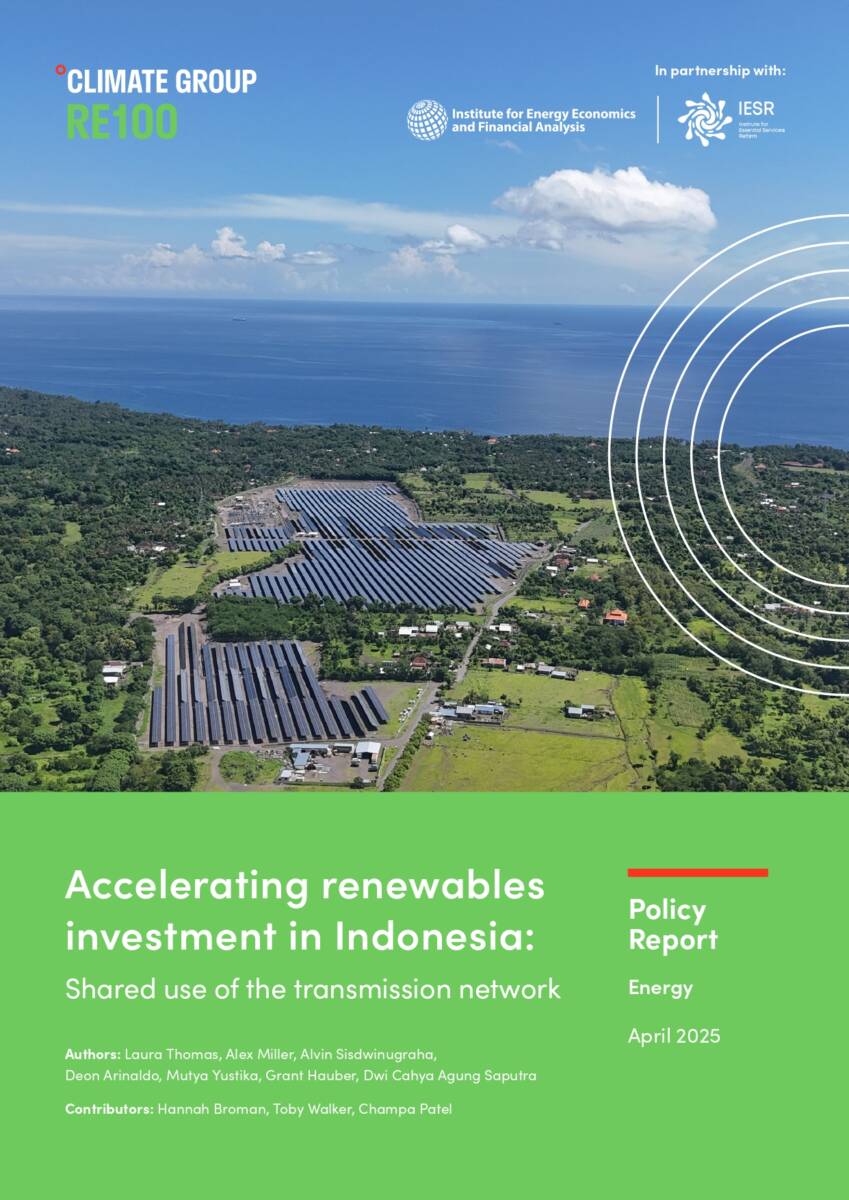
This publication underlines the urgency of accelerating renewable energy development in Indonesia in response to climate change, global targets, and
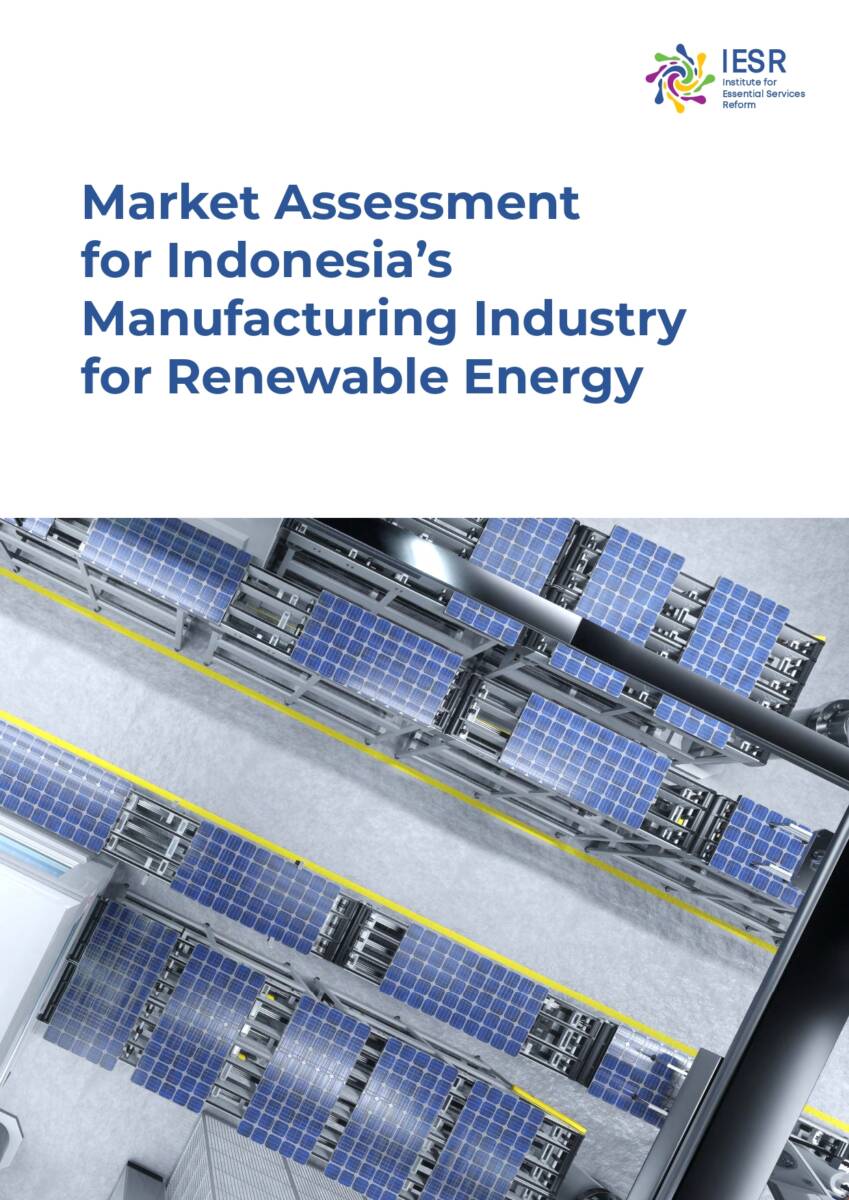
This publication highlights the urgency of renewable energy development in response to climate change and global targets such as the
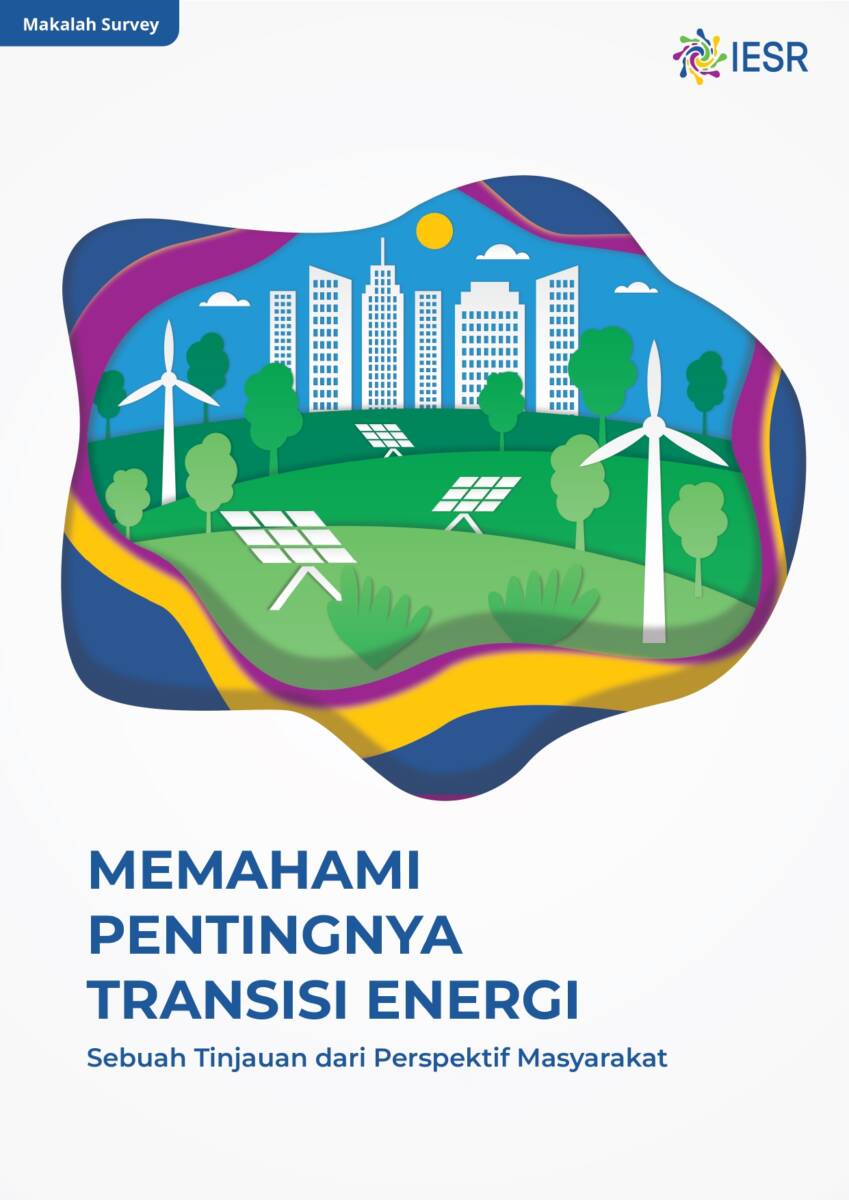
Amidst the global challenges faced due to climate change, the Institute for Essential Services Reform (IESR) took an important step
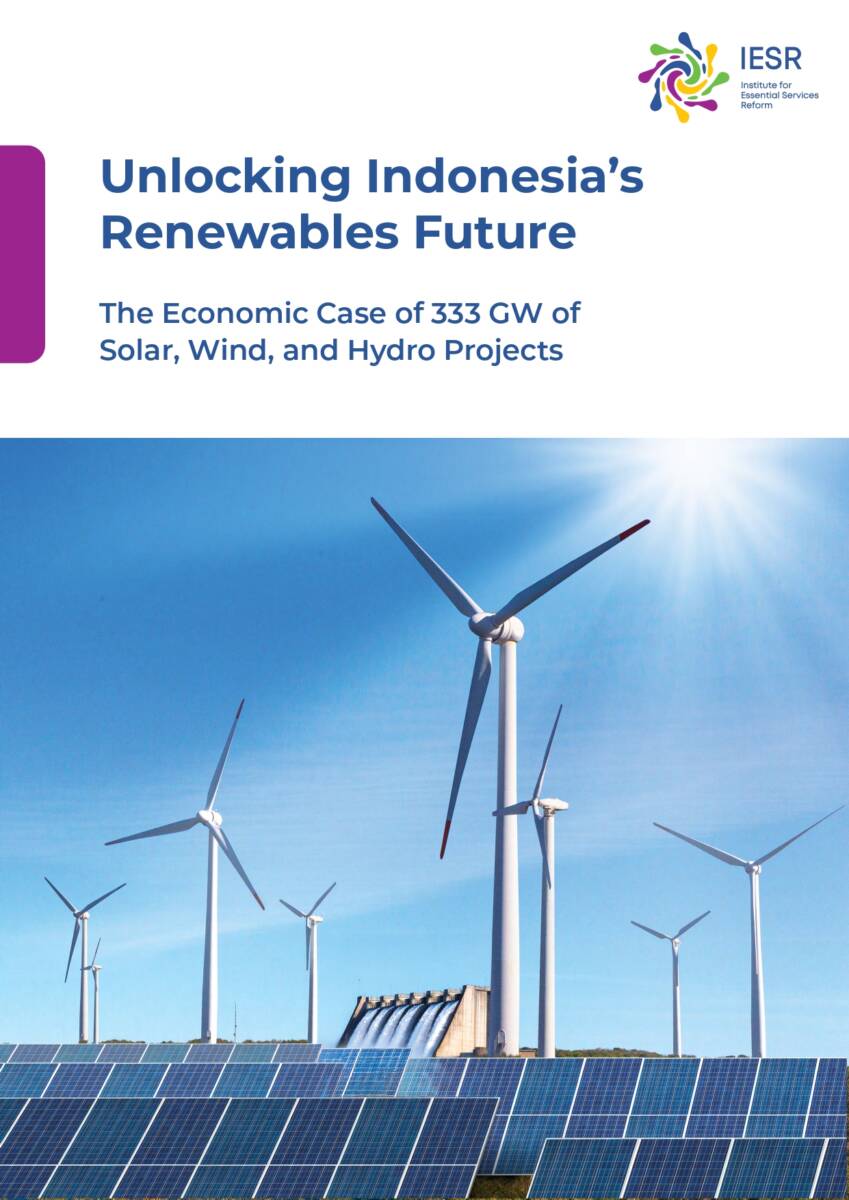
The publication, Unlocking Indonesia’s Renewables Future: the Economic Case of 333 GW of Solar, Wind and Hydro Projects, examines the
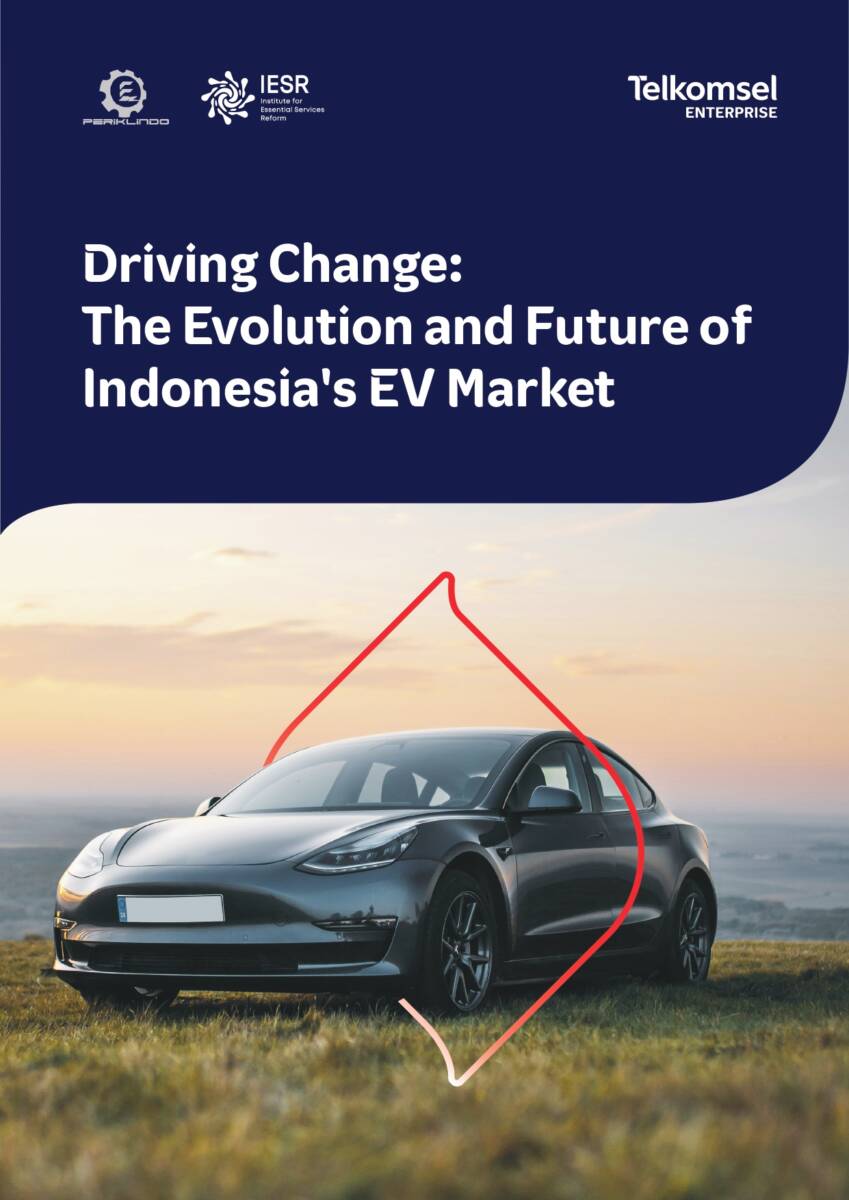
This white paper is a collaboration between IESR, Telkomsel, and Periklindo that explores the evolution and future of the electric

Central Java has taken a step towards a cleaner energy future by encouraging the use of rooftop solar power plants
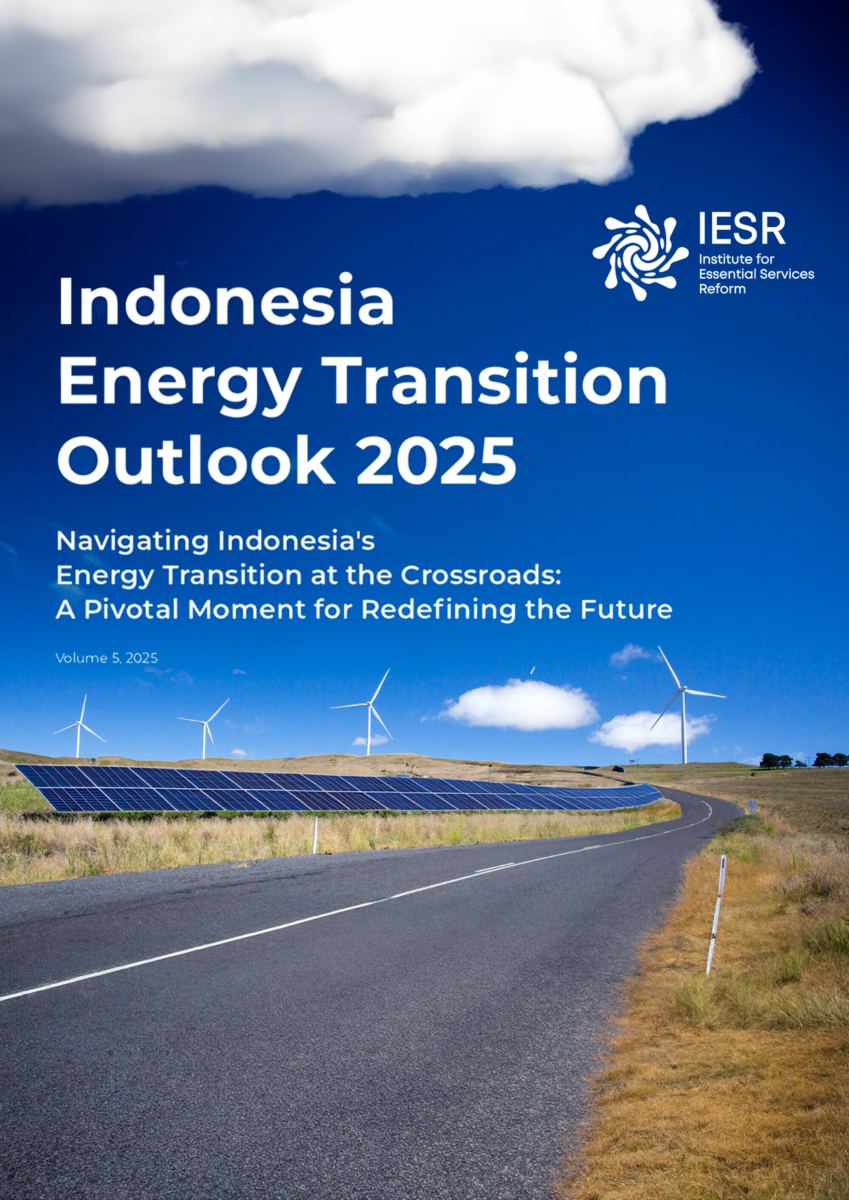
Navigating Indonesia’s Energy Transition at the Crossroads: A Pivotal Moment for Redefining the Future Indonesia stands at a critical juncture
